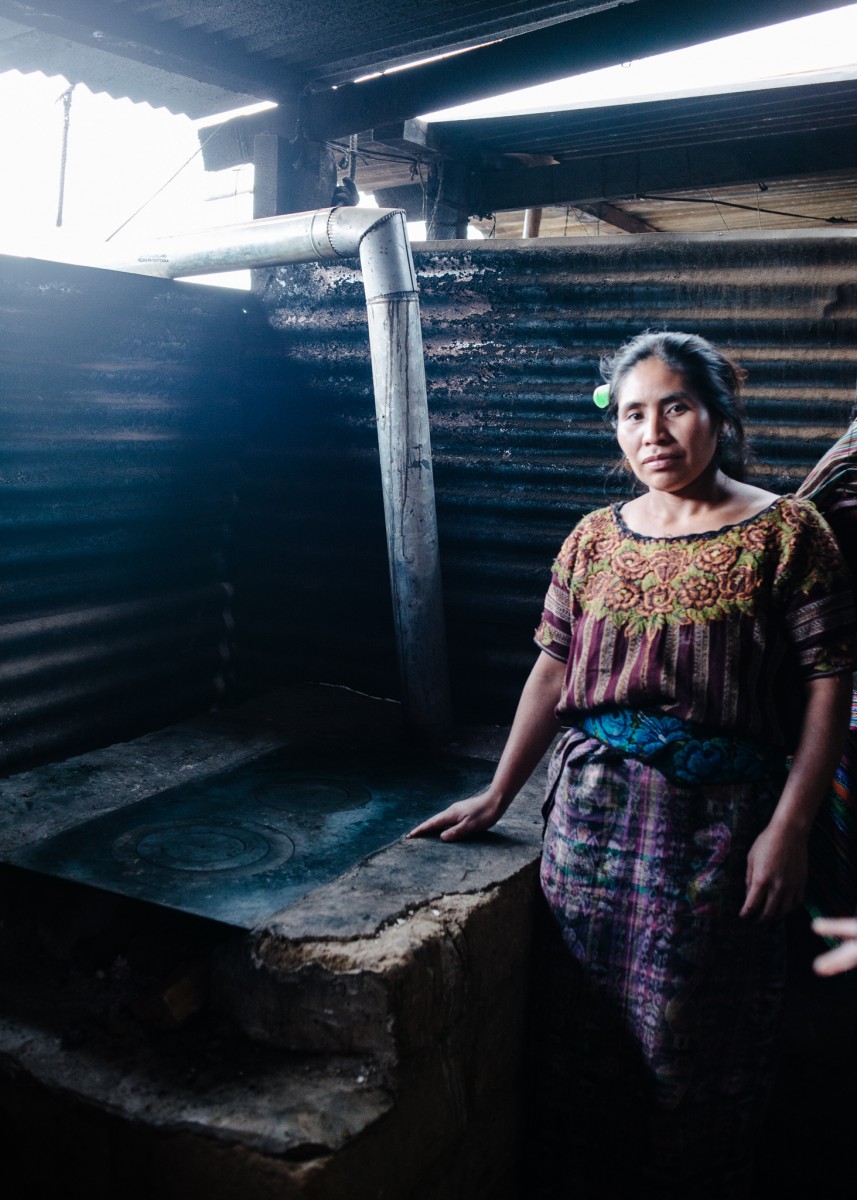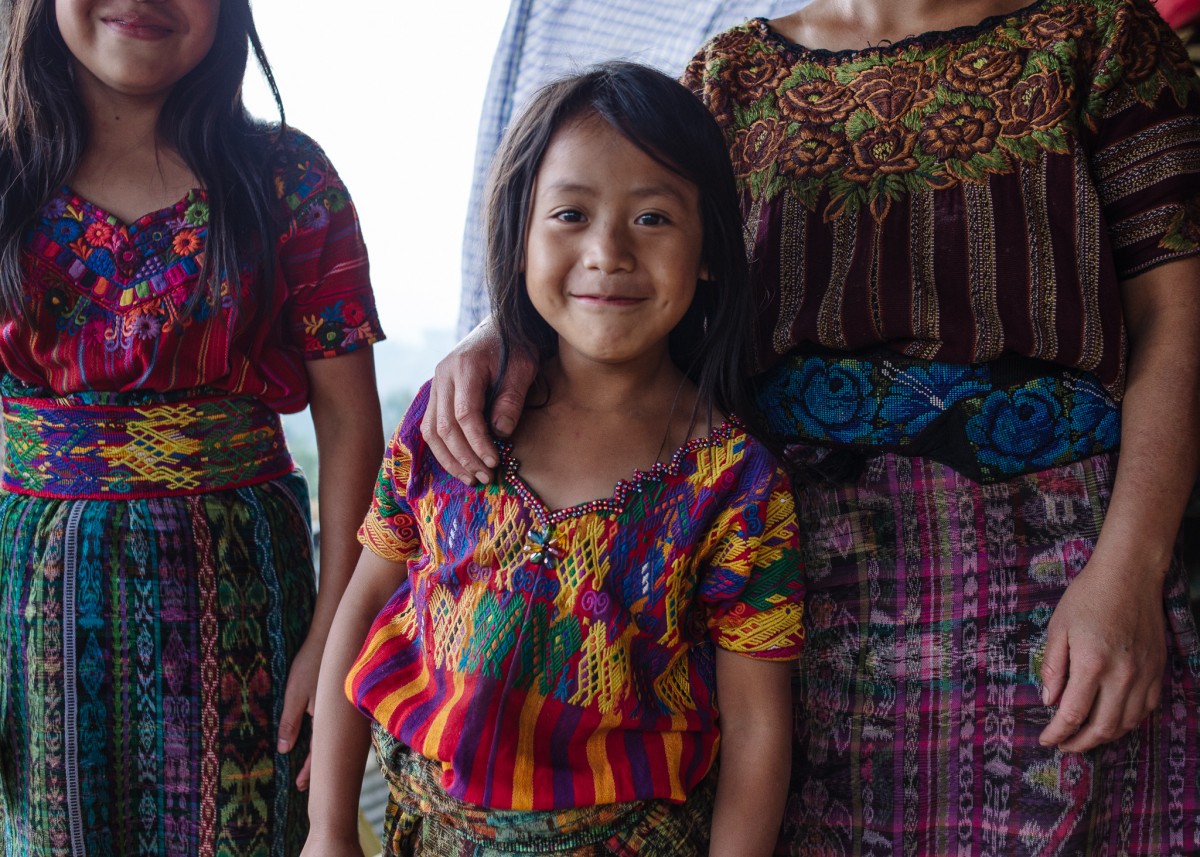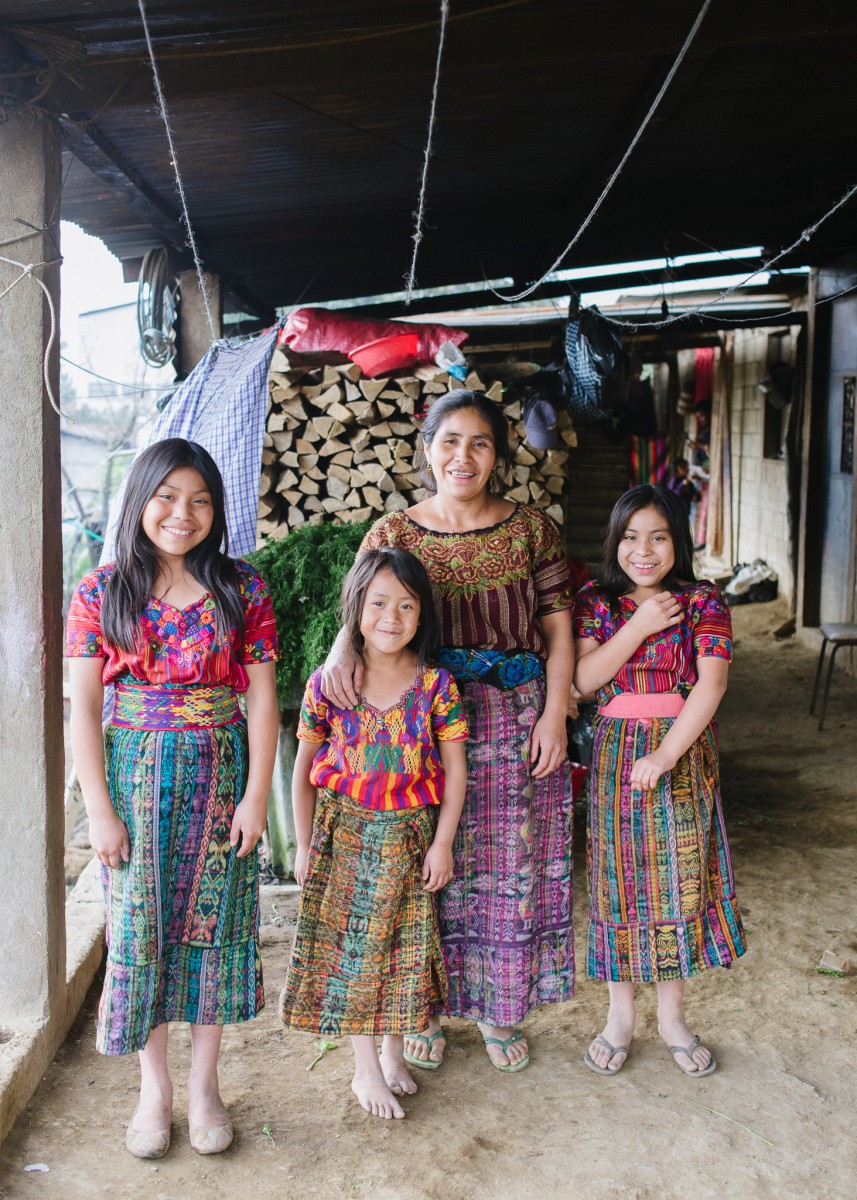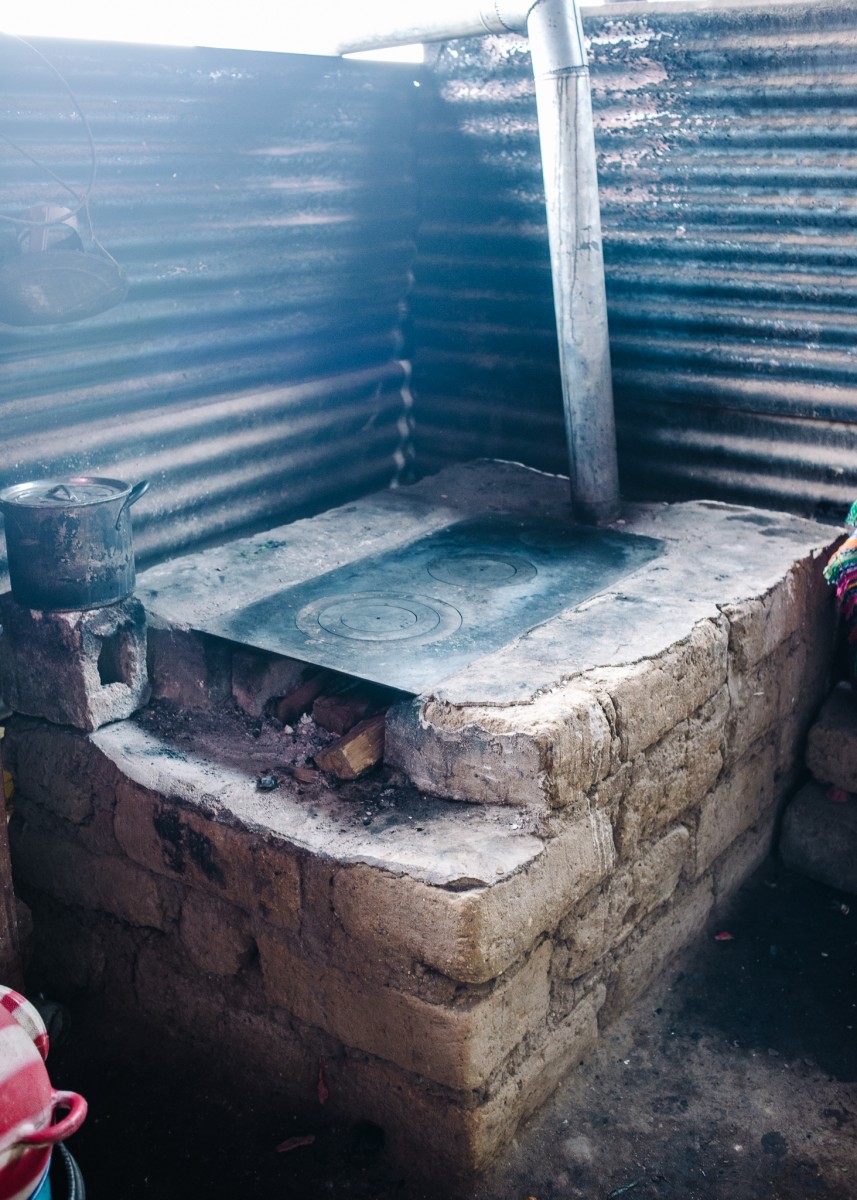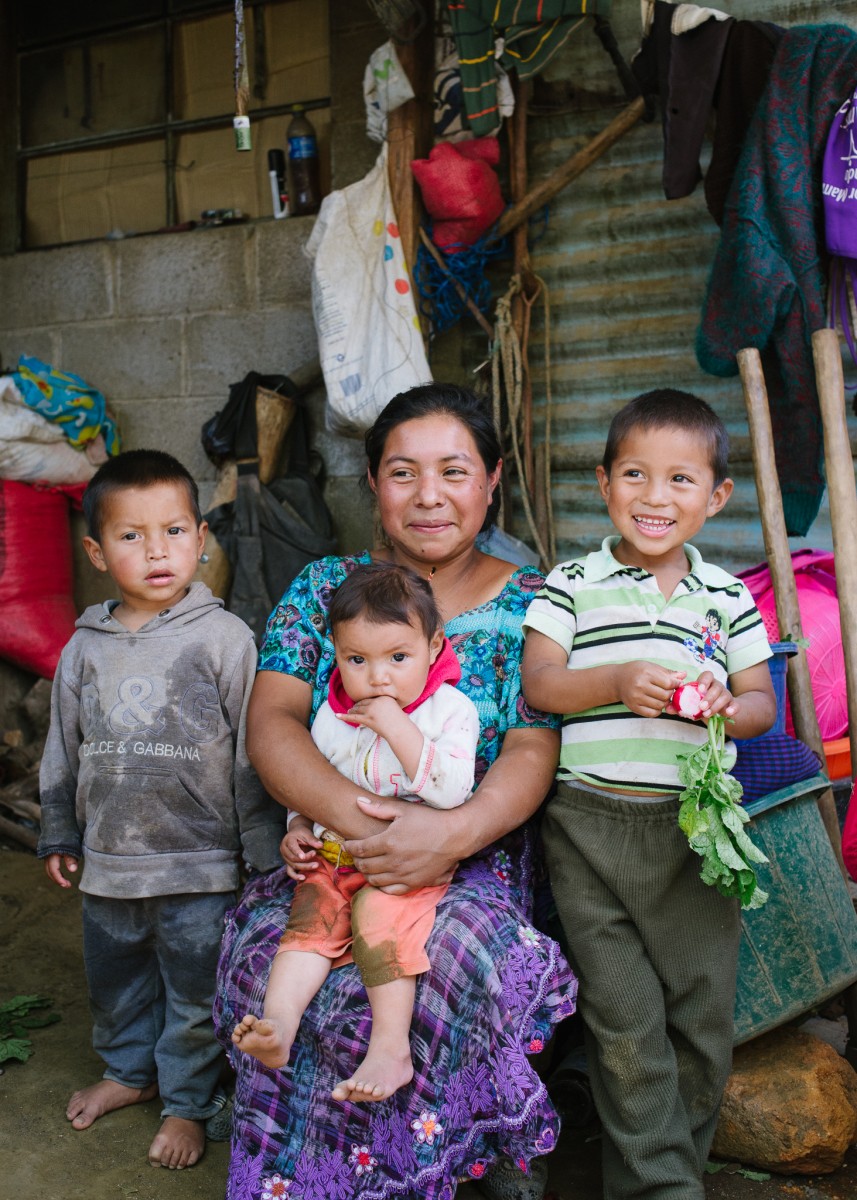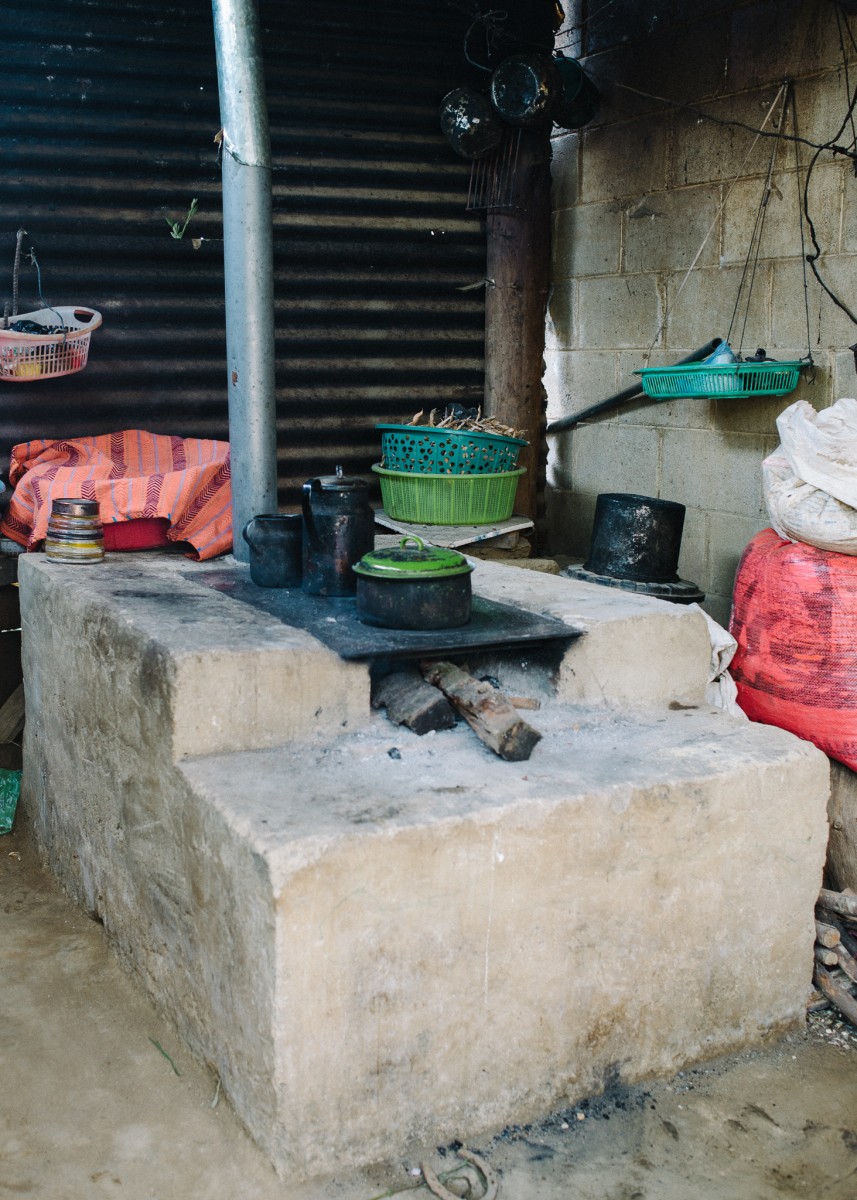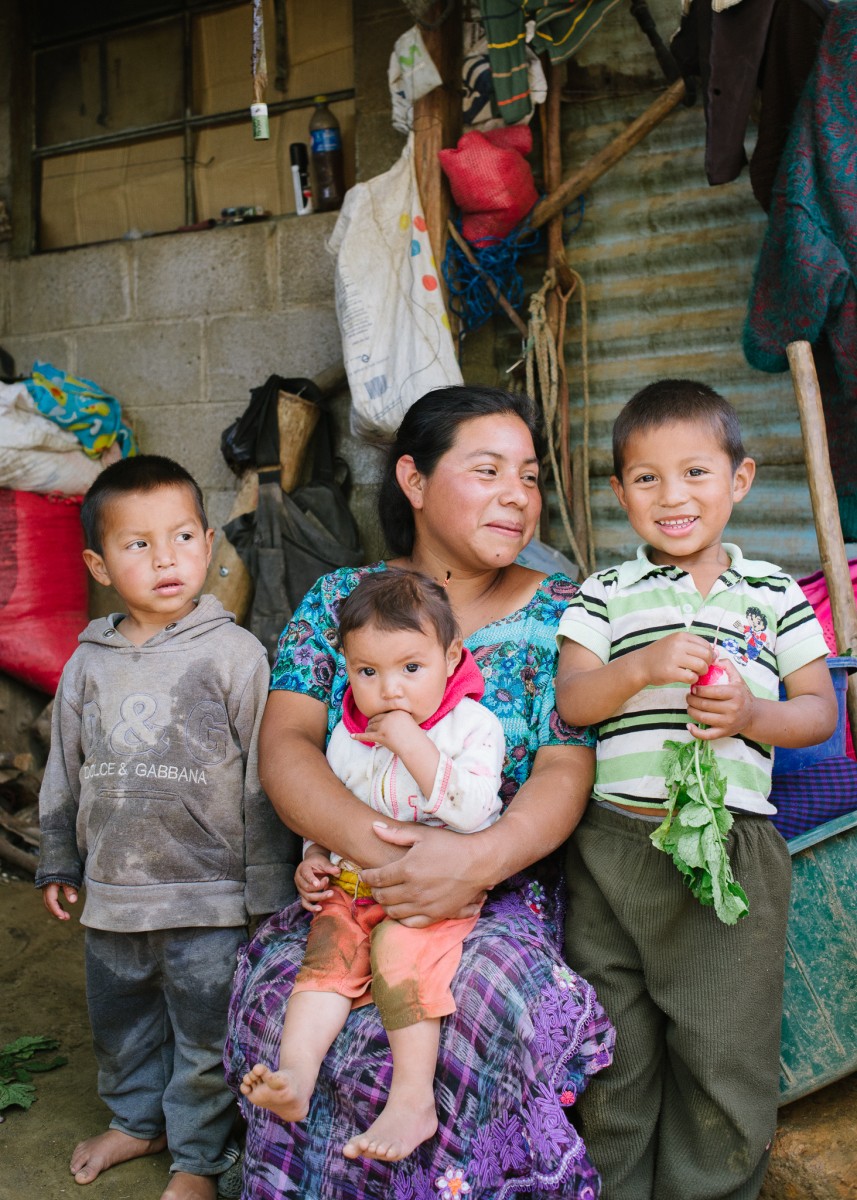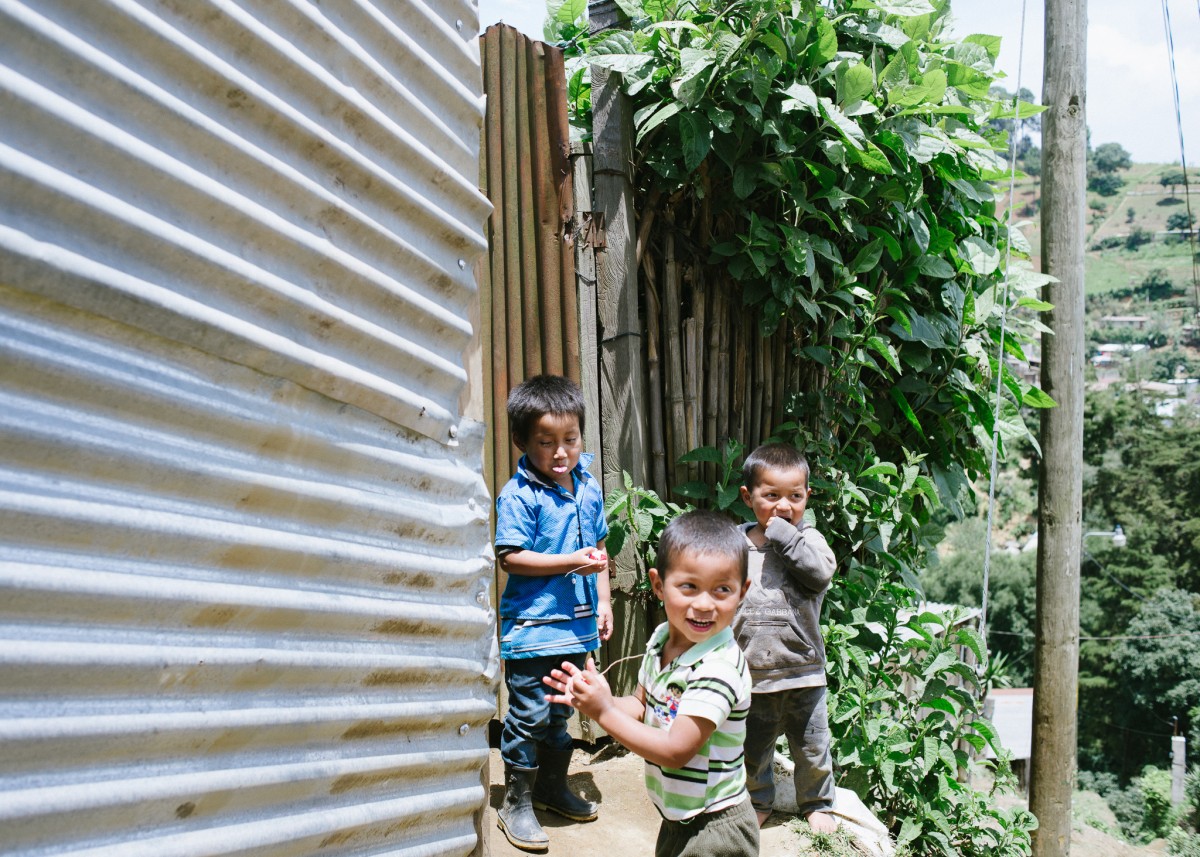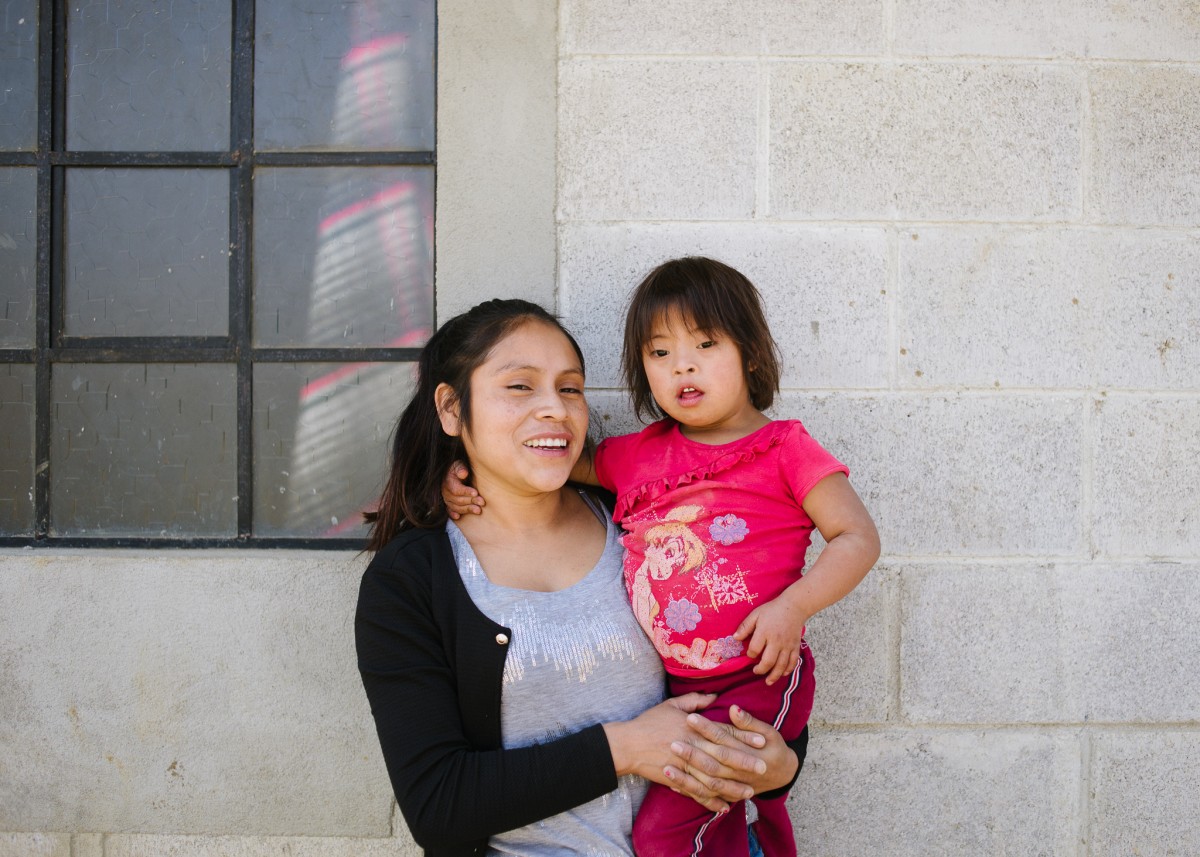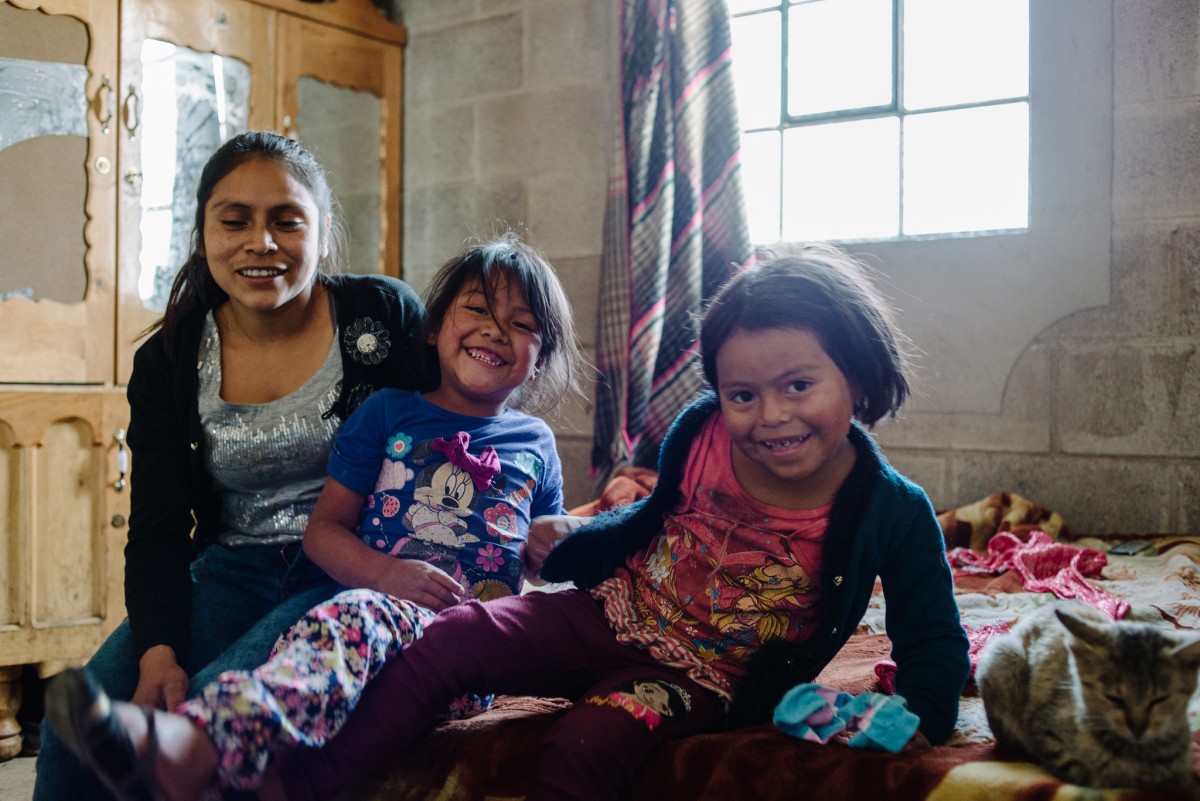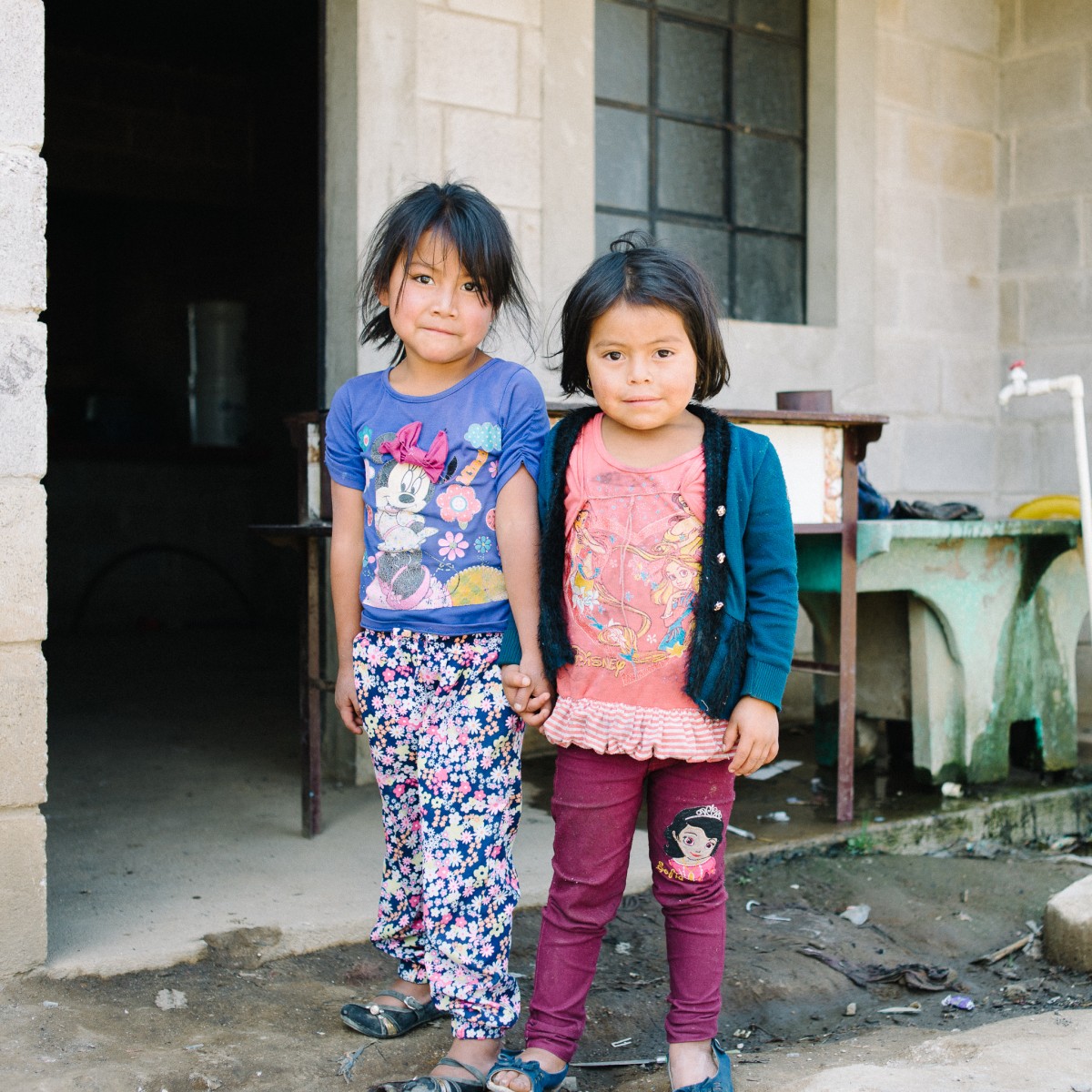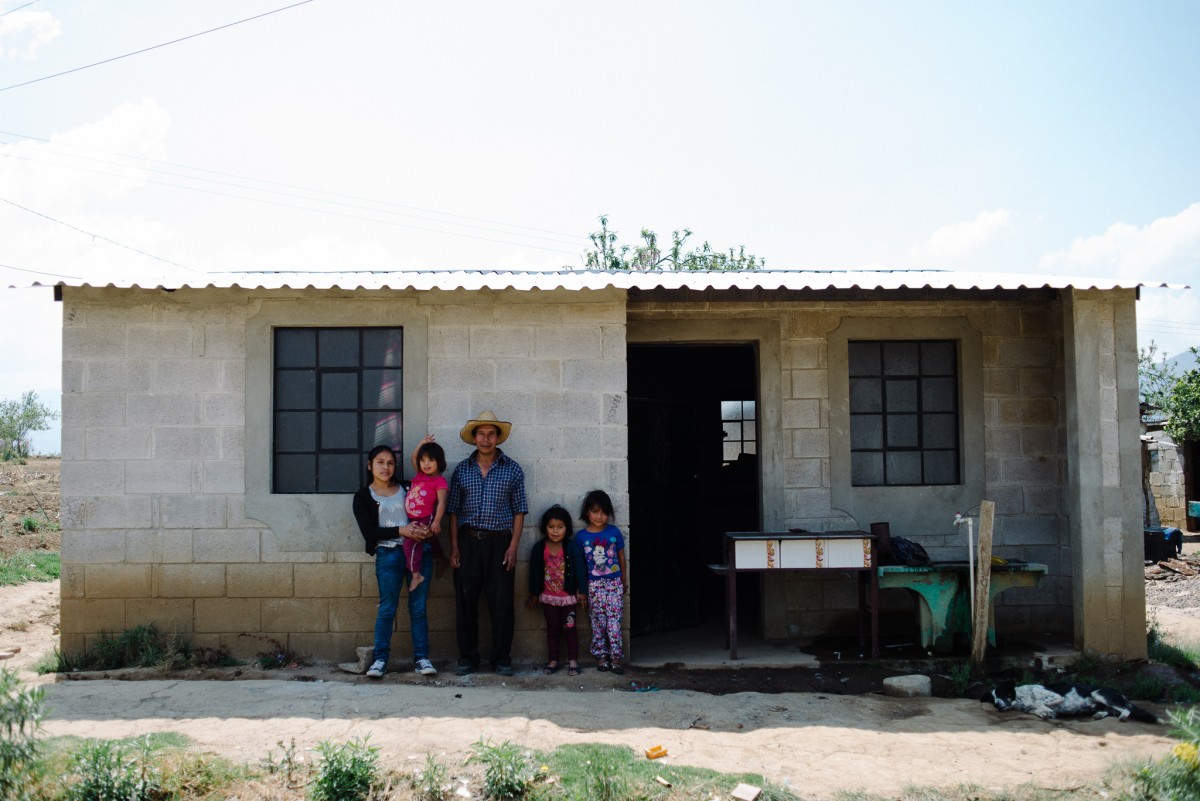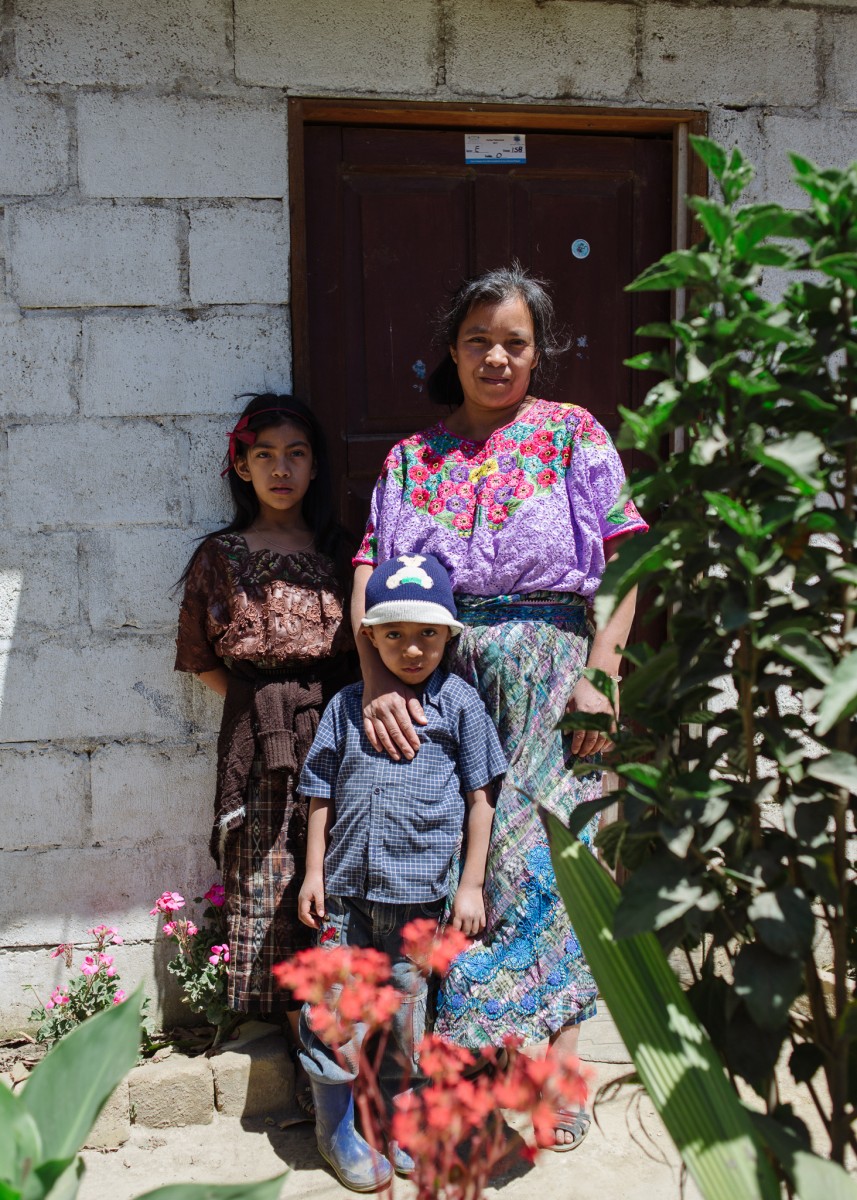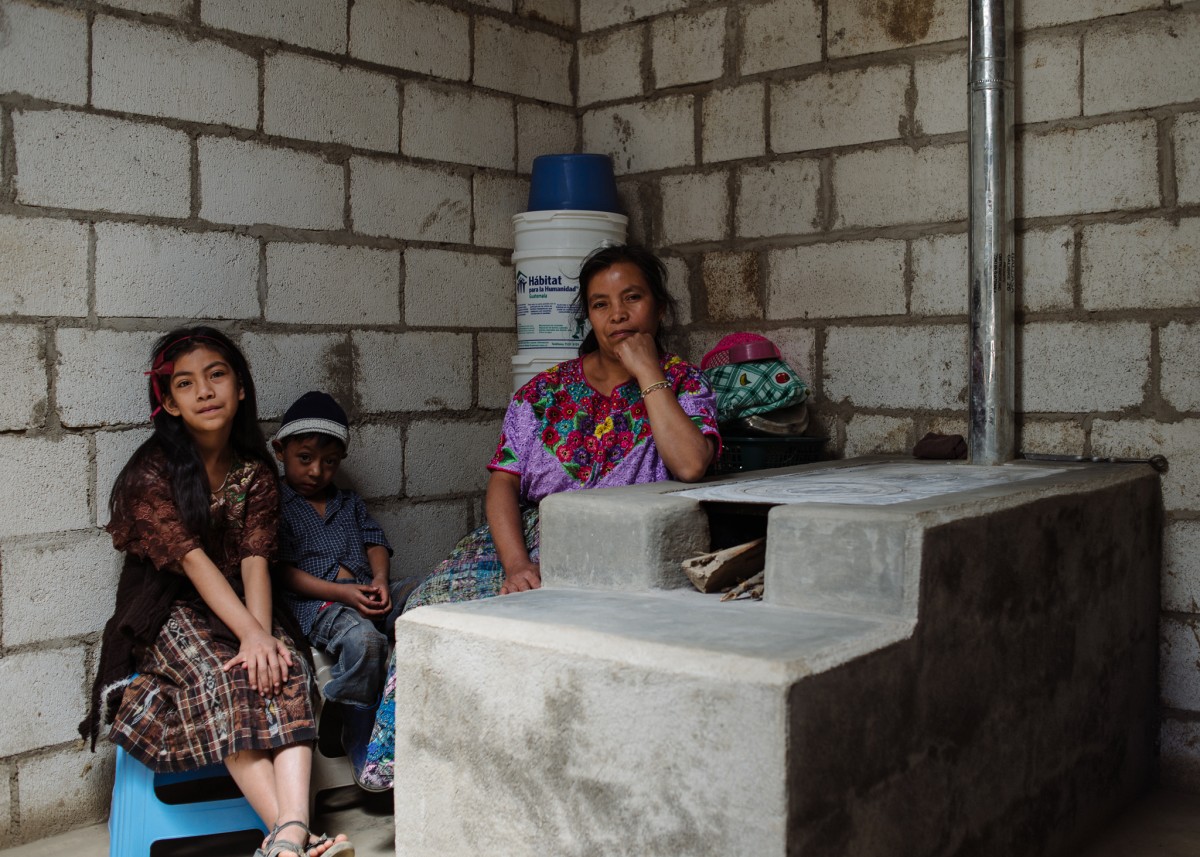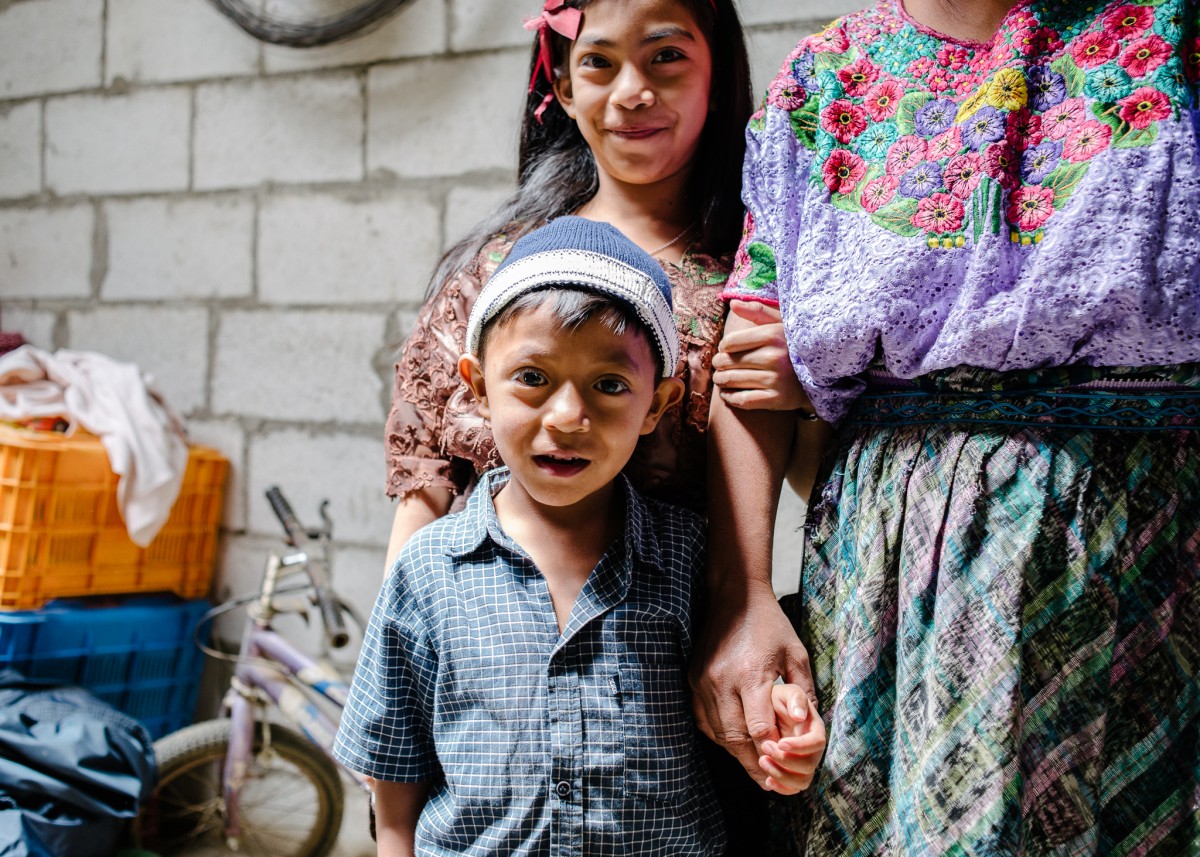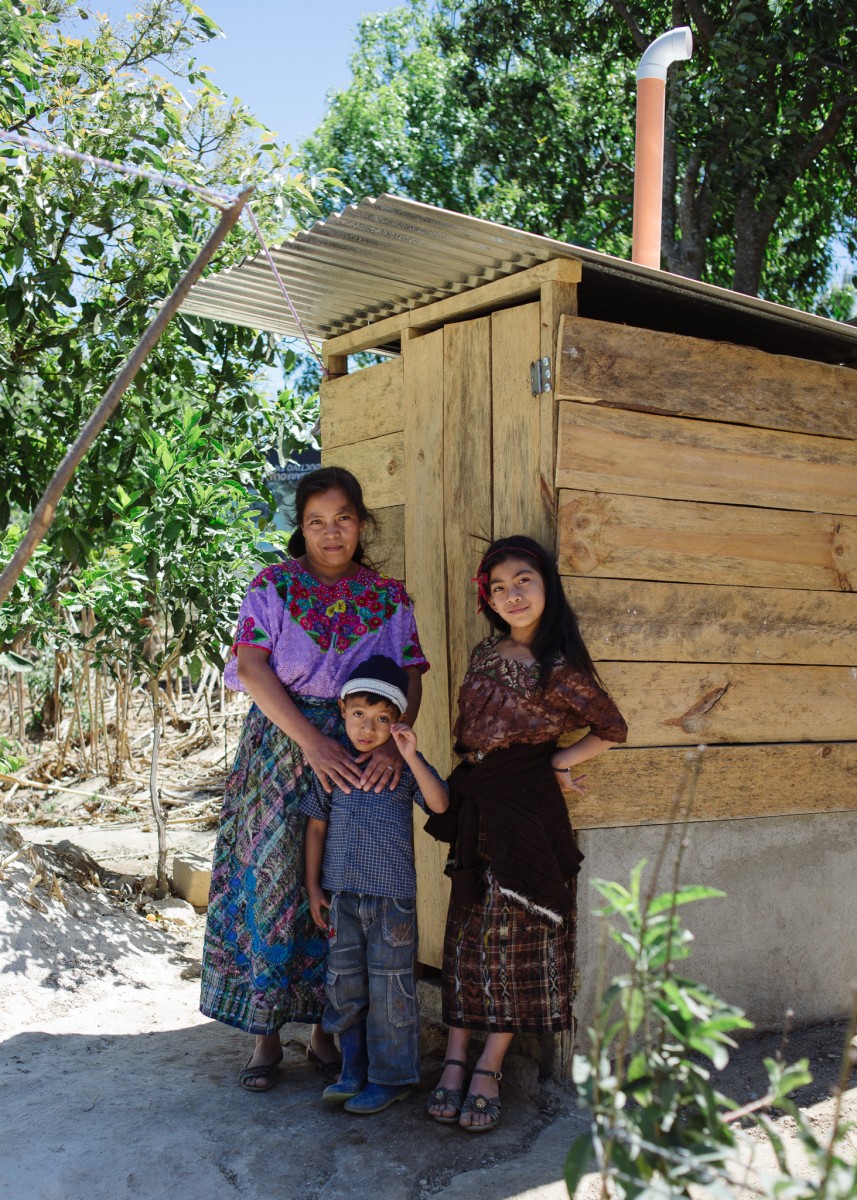The Key to Community Development

“I look out at the town and see so many houses with smoke coming out of the chimneys!”, says Margarita Chocon. One year ago, this wasn’t the case in El Rejón, the community where Margarita lives. El Rejón is a town in the department of Chimaltenango in central Guatemala. 3,025 people live in the community and the predominant language spoken is Kaqchikel, with Spanish being the second language of many. Over the past year, Habitat for Humanity Guatemala has collaborated with Margarita to build 113 smokeless stoves in El Rejón.
“Life is difficult here,” says Margarita. “During the summer months, people suffer because there is no work. During rainy season people work in the fields growing crops. The best crops are sent to the United States and the lower quality produce is sold here, in markets. So, in the summer, some people gather and sell wood, others cut down trees and make them into posts to sell.” When Margarita says summer, she is referring to Guatemala’s dry season, which lasts from November until April. During half of the year the weather is warm and dry–and not suited for growing produce.

Margarita with Calixta, a woman who built a smokeless stove with Habitat for Humanity Guatemala
She continues: “My son looked and looked for jobs. But he couldn’t find one, so he works in the fields now too.” Margarita’s son is not alone in this. With the exception of low-paying work in the fields and selling firewood, there are few work opportunities for the people of El Rejón. On average, families in communities like El Rejón earn an average of $1-$3 USD per day.
Because of the lack of opportunity, it is a challenge for people to make improvements to their homes. For this reason, when Margarita decided that she needed a new stove because her old stove filled her home with smoke, she talked to a group of local leaders to see what she could do. They connected her with Habitat for Humanity Guatemala. This is how she met Hugo, a promoter at the Habitat Guatemala Chimaltenango affiliate office. Hugo is in charge of implementing Healthy Home Kit projects throughout central Guatemala. Smokeless stoves are a component of a Healthy Home Kit and, in addition to removing smoke from the cooking area, reduce wood use by 50%.

Margarita leaves the home of a Habitat Guatemala partner family in El Rejón.
Hugo taught Margarita how to make the adobe blocks for the smokeless stove and, after her stove was finished, asked if she would volunteer with Habitat Guatemala to connect him with women in El Rejón who would benefit from a smokeless stove. “I asked Margarita to help me and so she began to work with us.” Hugo explains.
“Right now we are building stoves with people. We are hoping to make stoves first and then start building latrines,” continues Hugo. “We hold trainings on how to build the adobe blocks for the stoves at Margarita’s house and we also store supplies there.” Hugo says that working with a community member is la llave (the key) to being able to connect with people and successfully complete a project in communities. This is because many indigenous communities are suspicious of outsiders, due to Guatemala’s history of discrimination against indigenous peoples and the Civil War that lasted from 1960 until 1996.

Margarita waits outside the home of a family who recently built a smokeless stove.
“I like doing this project,” says Margarita. She continues, talking about how her smokeless stove has affected her daily life. “For me, my stove has changed things. My home used to be smoky, but not now. And a bundle of wood lasts me much longer. It changed everything.”
When asked about what it was like to begin the smokeless stove project in El Rejón, Margarita says: “At first it was difficult to start this project. People didn’t understand how to make the adobe blocks. But if they want a new stove, they have to make them! We tell the community when we are going to build more stoves and they come to my house to sign up. Right now we have thirty-five families waiting to build their stove. And I hope that with time that more families will have stoves!”

Margarita walks with Hugo to visit Habitat Guatemala partner families. Like many towns in Guatemala, people in El Rejón cannot afford to have their trash disposed of and have to dump it in their community.
To date, 113 smokeless stoves have been built in El Rejón. This has been made possible by participation of community members, dedication of Habitat Guatemala staff like Hugo, and the work of Habitat for Humanity Global Village volunteers. During Habitat Guatemala’s 100,000 Housing Solution Celebration, 17 smokeless stoves were built by 60 volunteers in one day! Because she knows firsthand how her smokeless stove has improved her daily life, Margarita is committed to volunteering with Habitat Guatemala so that more women have the same opportunity.

Margarita points to landmarks in the area surrounding El Rejón.

Margarita relaxes while waiting to visit a Habitat Guatemala partner family.

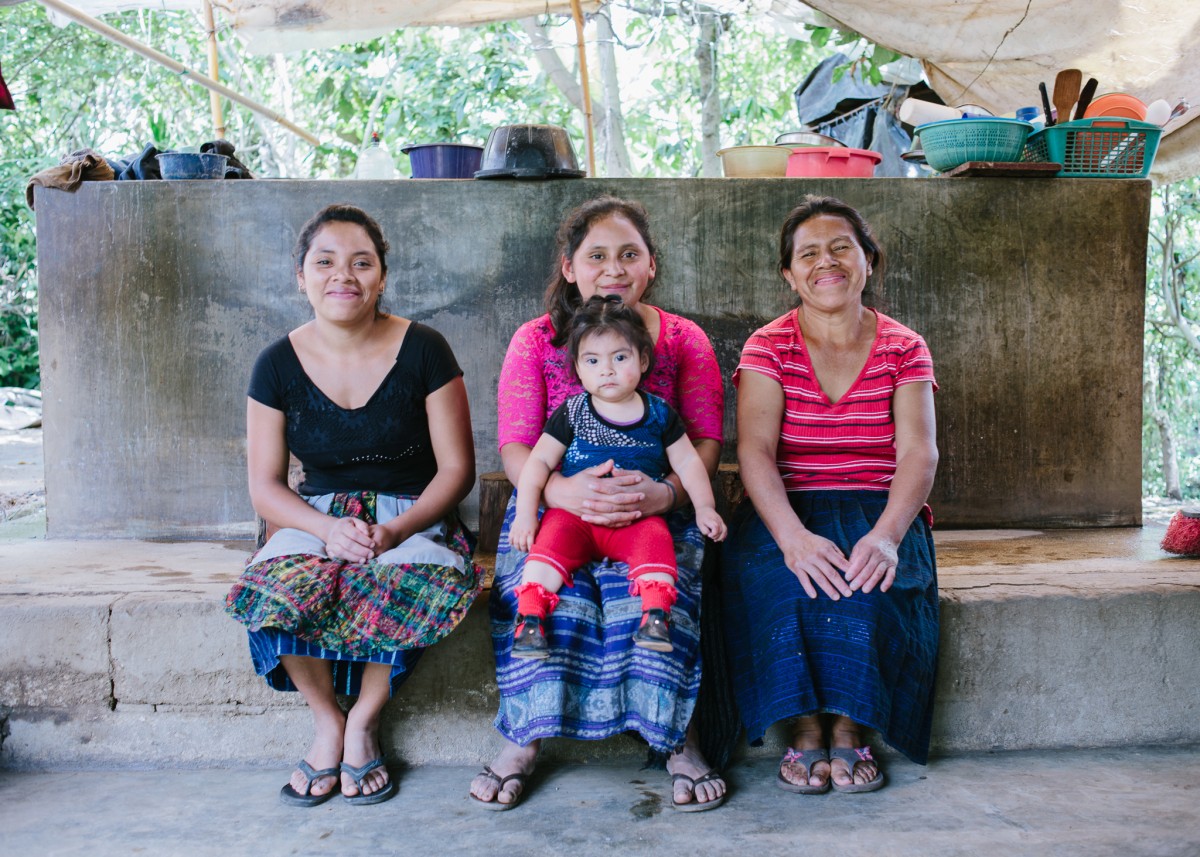

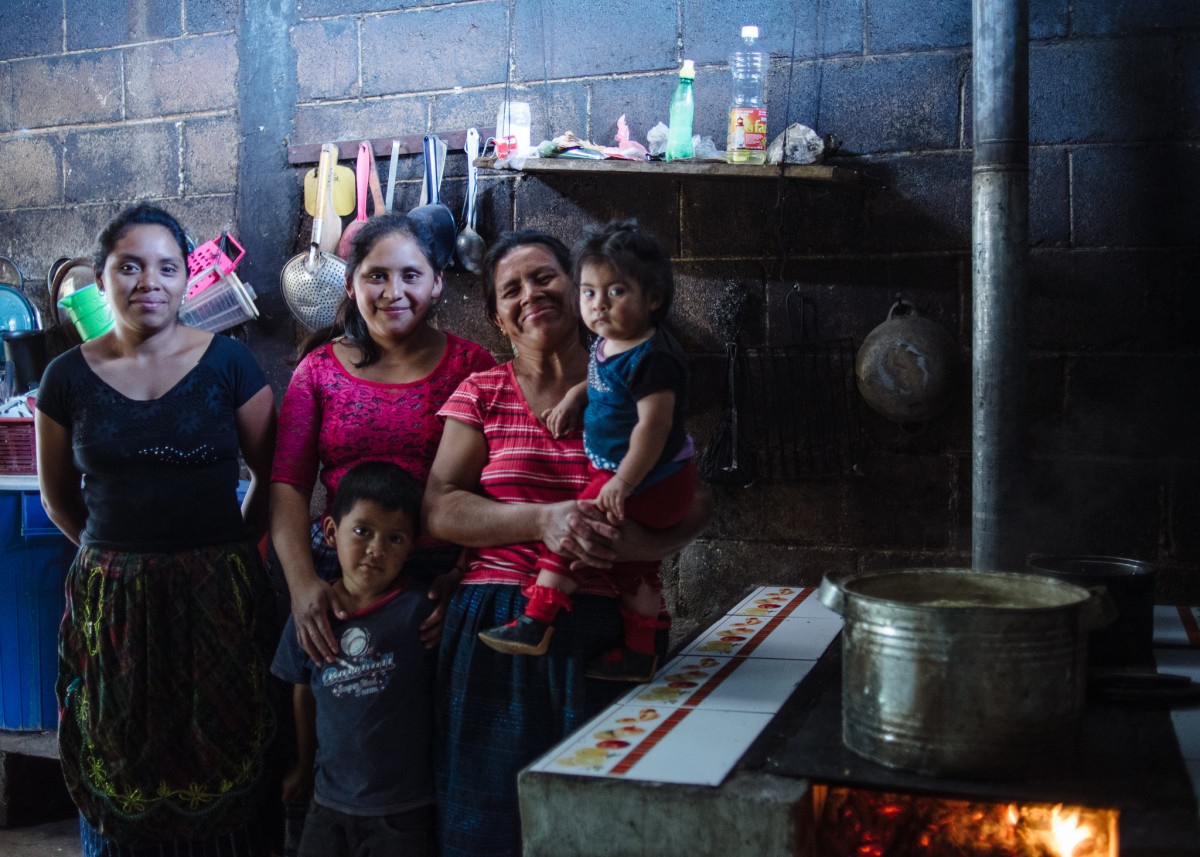
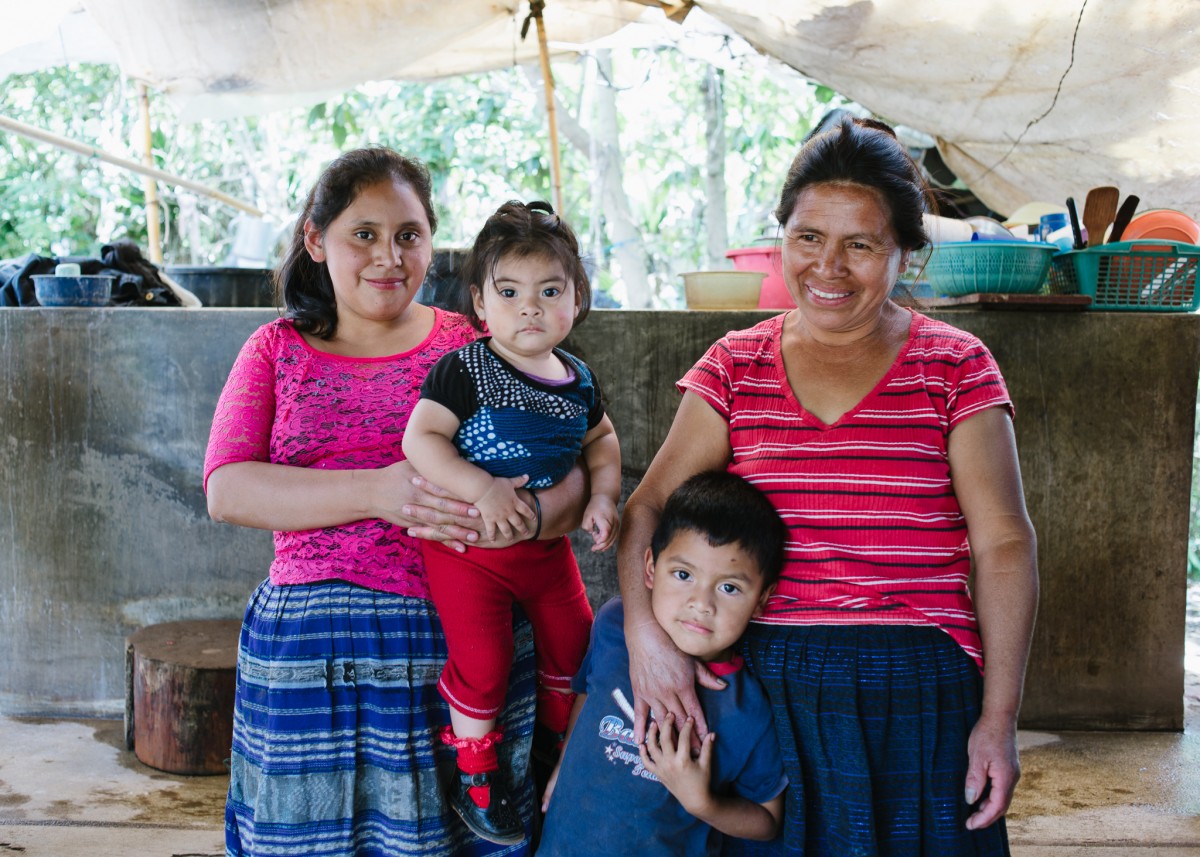
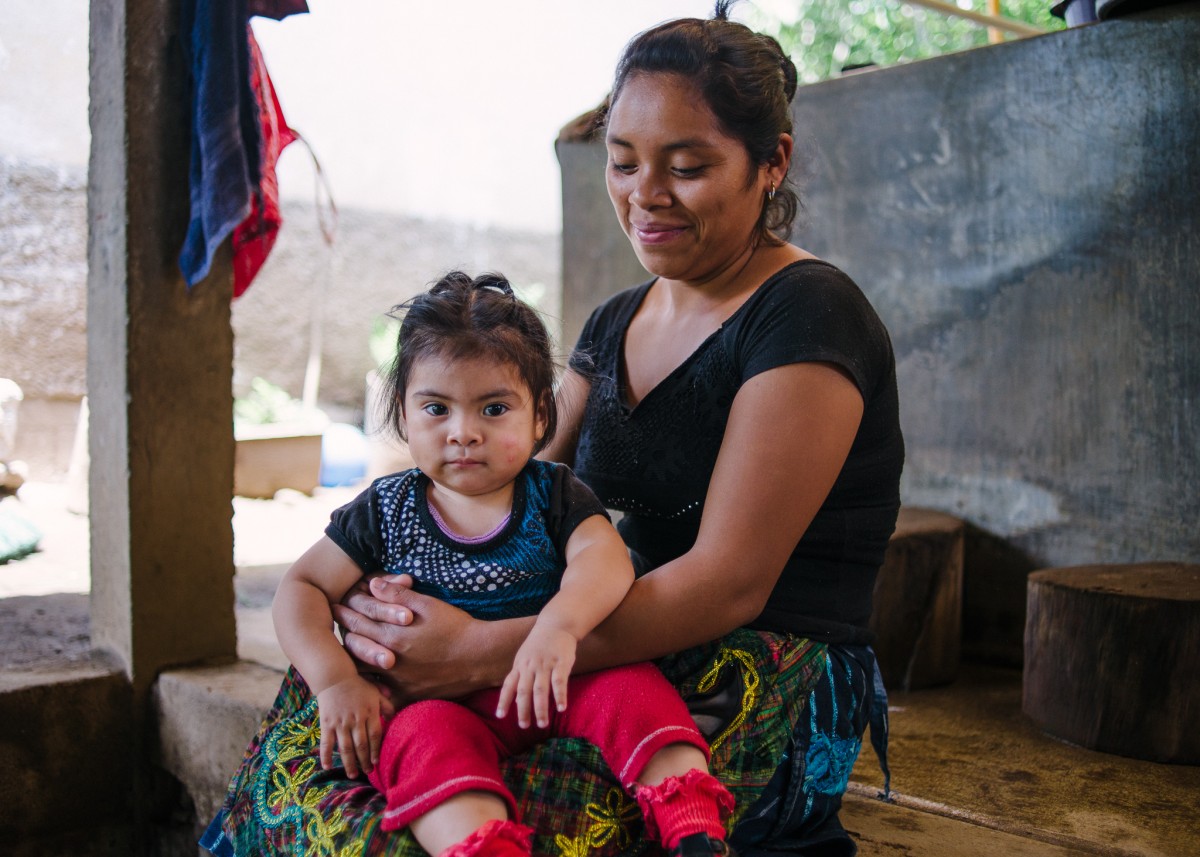
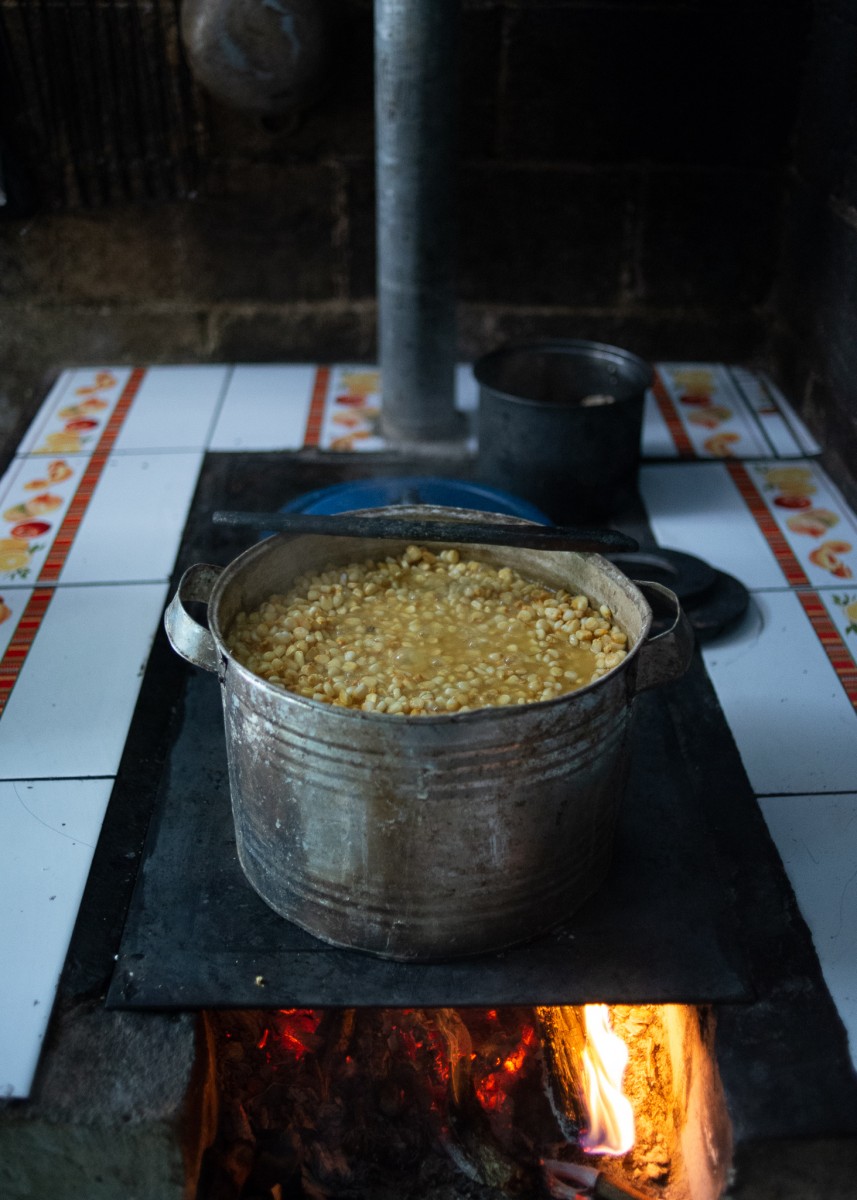











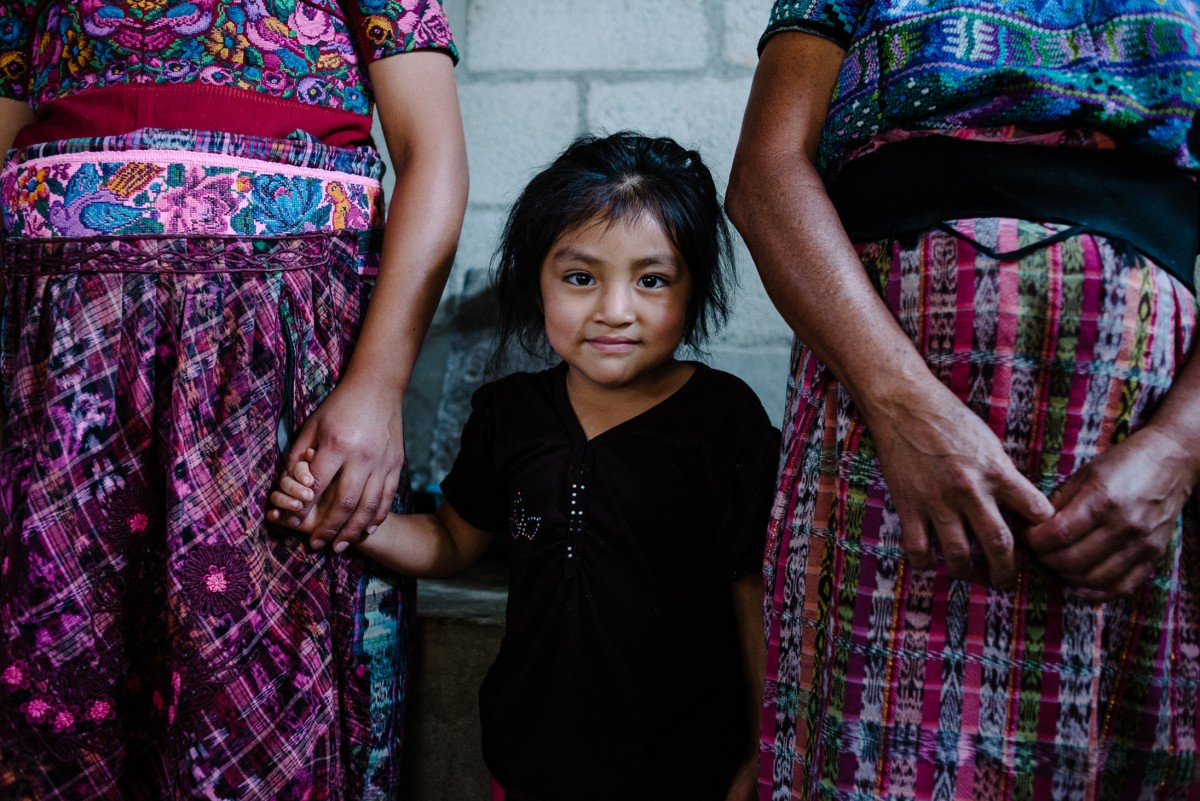
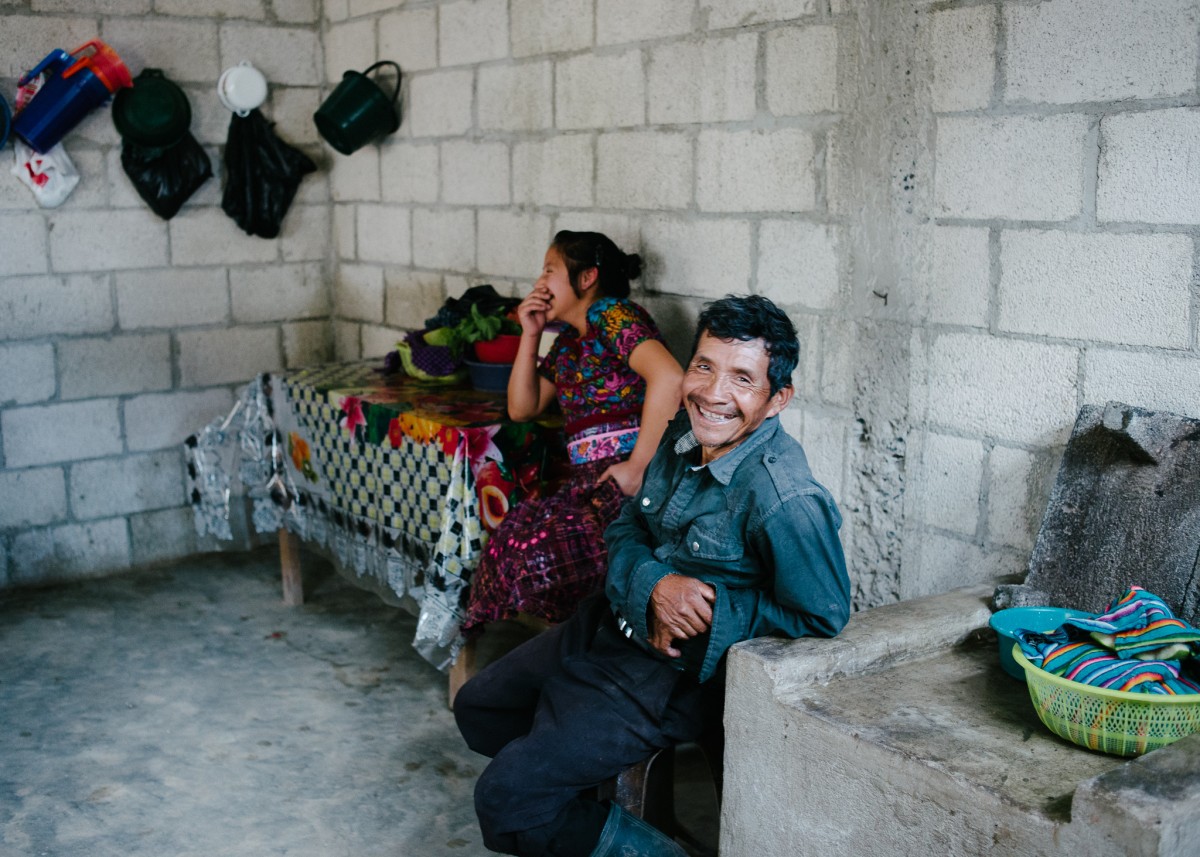
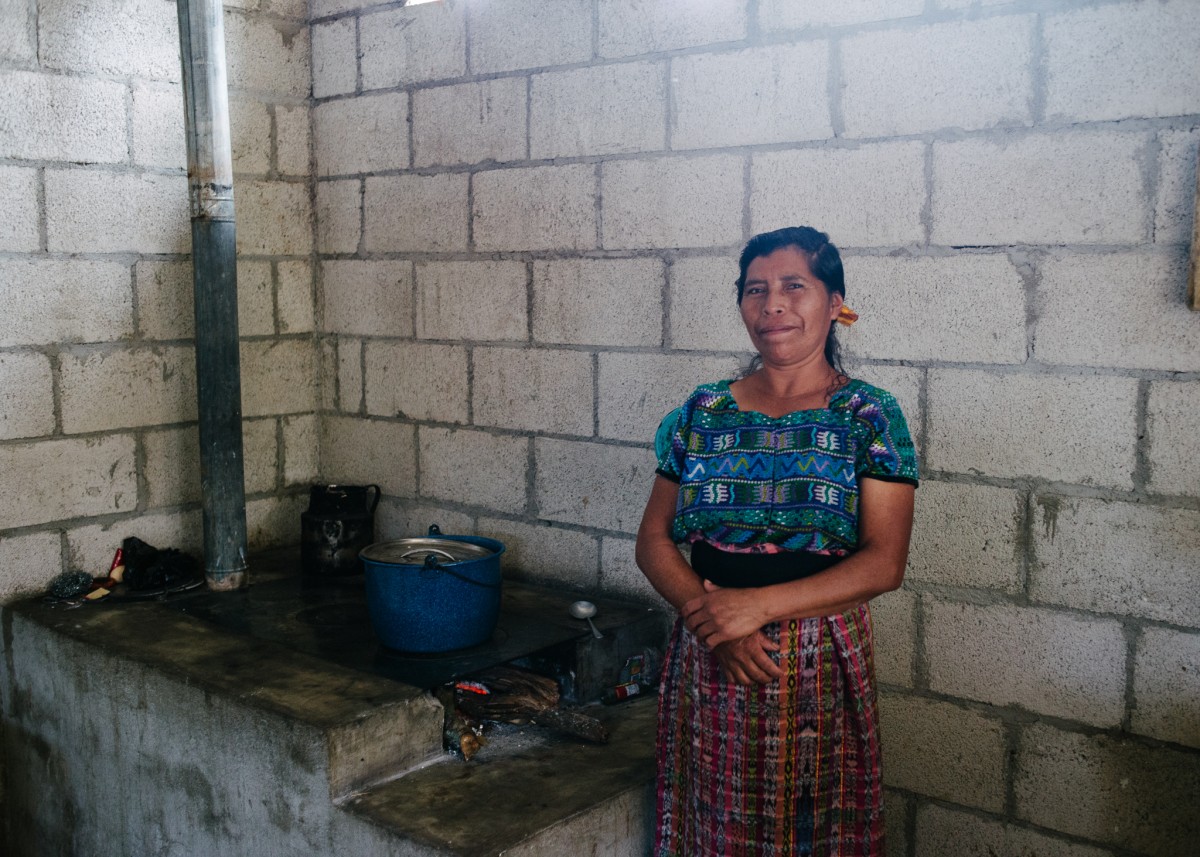
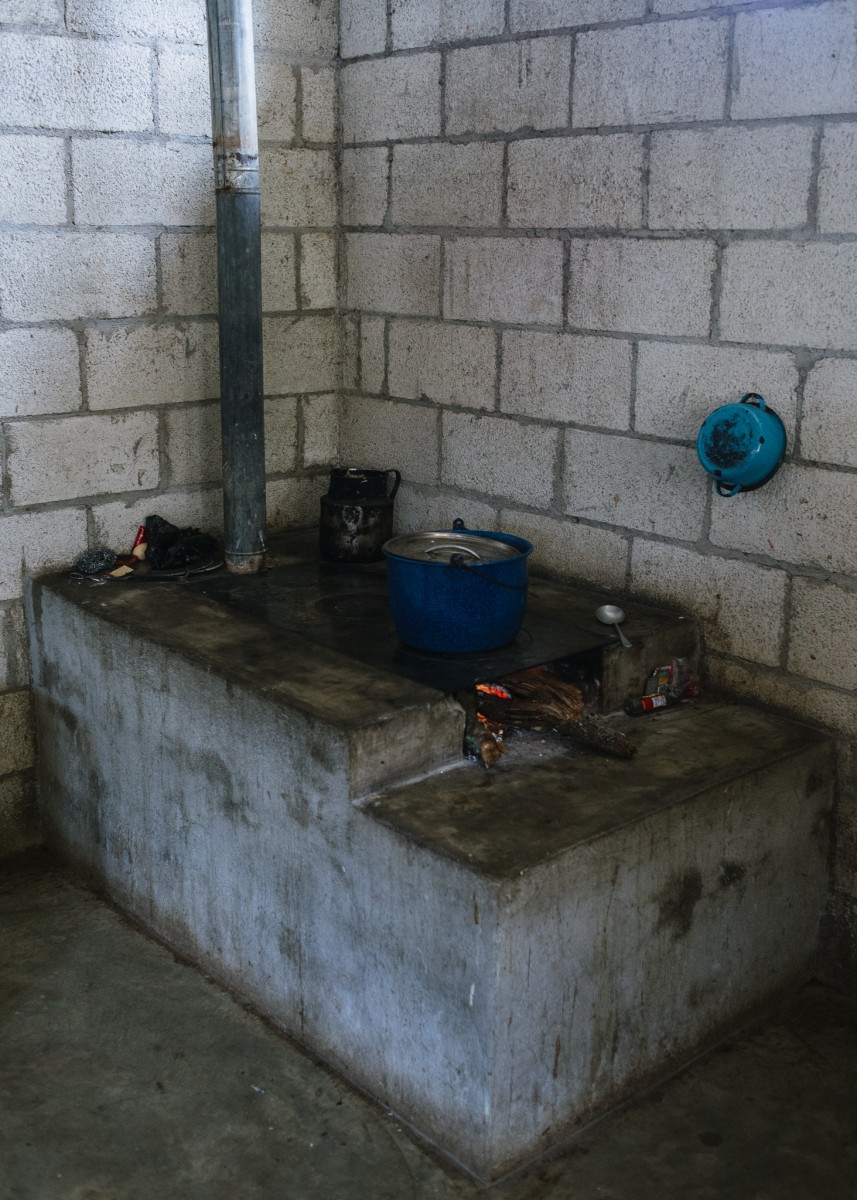





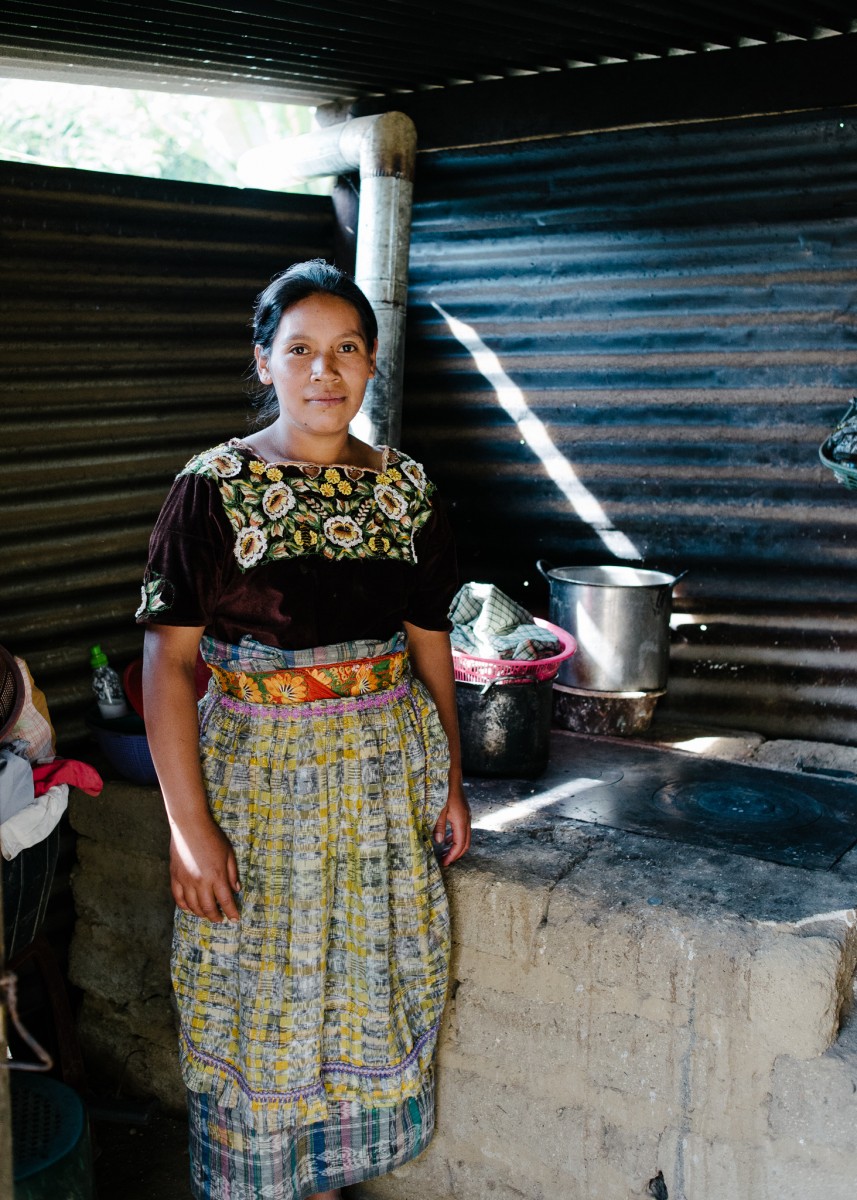

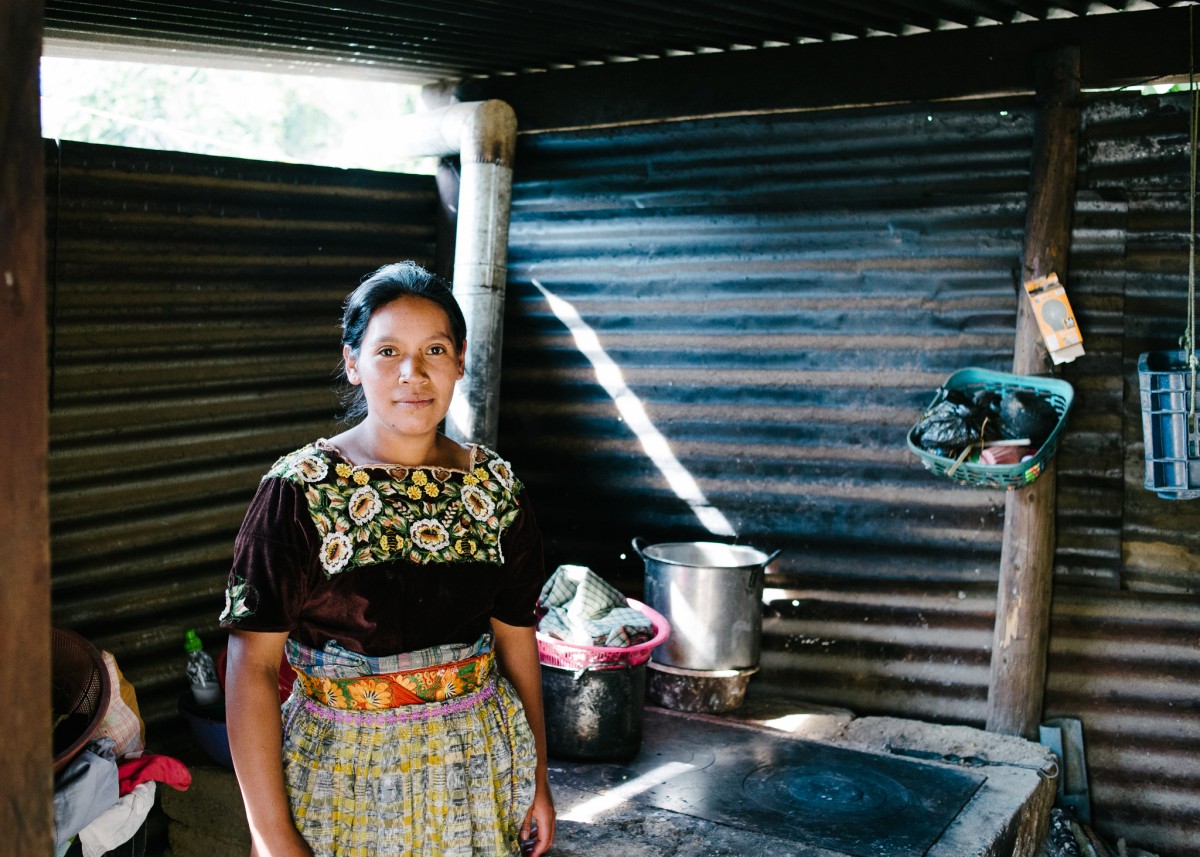
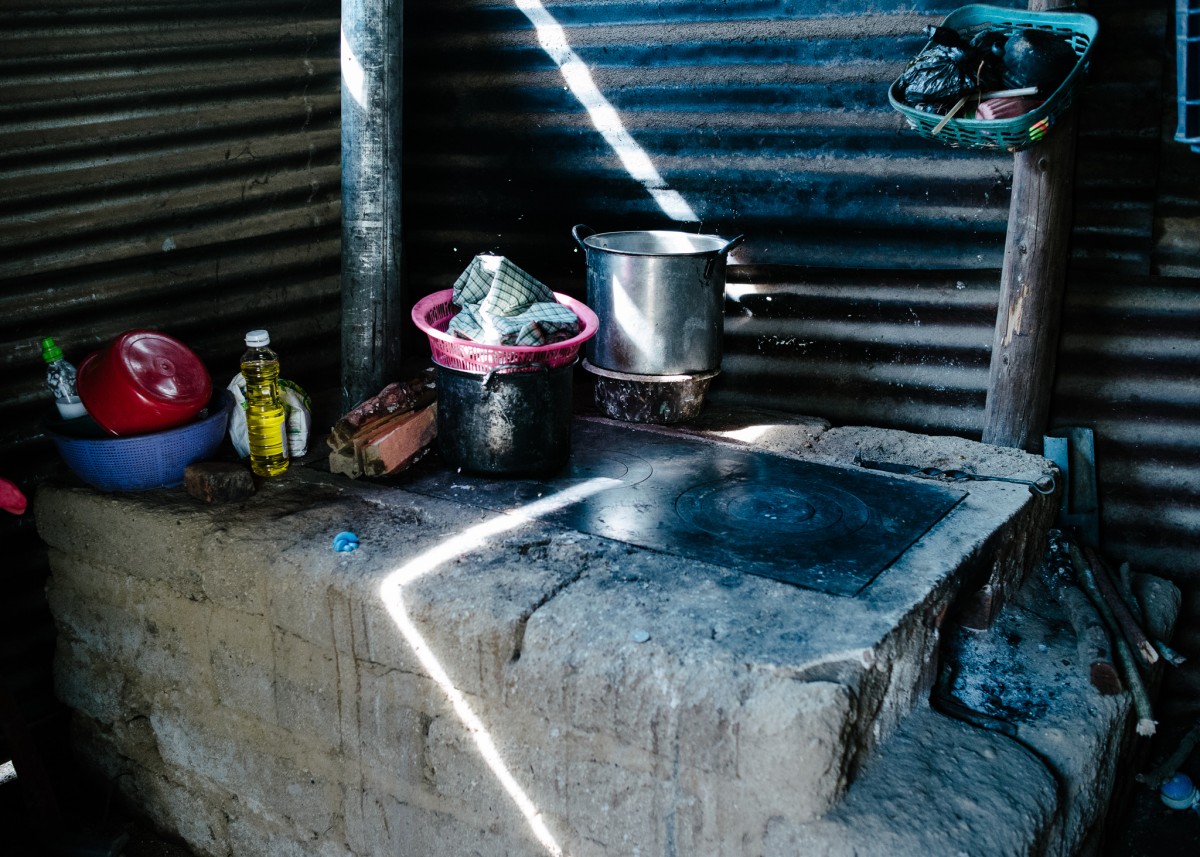


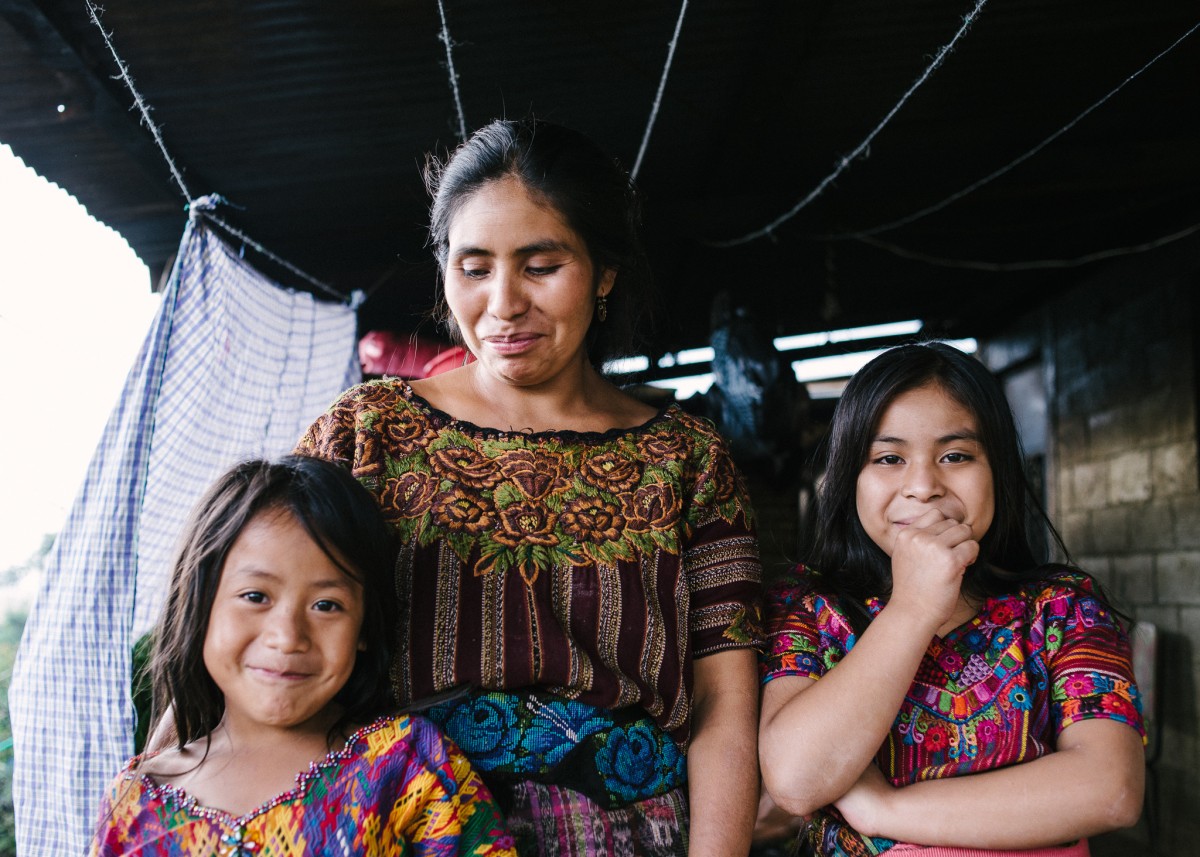
 Before partnering with Habitat for Humanity Guatemala, Ana María cooked on a stove that she constructed using a small, metal tripod which she stabilized using cinder blocks. She would place her pot on the metal tripod and make a fire underneath the pot. Now that she has a smokeless stove, cooking is easier, faster, and more comfortable. Ana María explains: “I like my stove because once I make the fire, it heats up very quickly. There is a burner where I make tortillas and another for coffee it heats everything up so well! And there is much less smoke now because it gets carried out of the house by the chimney.”
Before partnering with Habitat for Humanity Guatemala, Ana María cooked on a stove that she constructed using a small, metal tripod which she stabilized using cinder blocks. She would place her pot on the metal tripod and make a fire underneath the pot. Now that she has a smokeless stove, cooking is easier, faster, and more comfortable. Ana María explains: “I like my stove because once I make the fire, it heats up very quickly. There is a burner where I make tortillas and another for coffee it heats everything up so well! And there is much less smoke now because it gets carried out of the house by the chimney.”